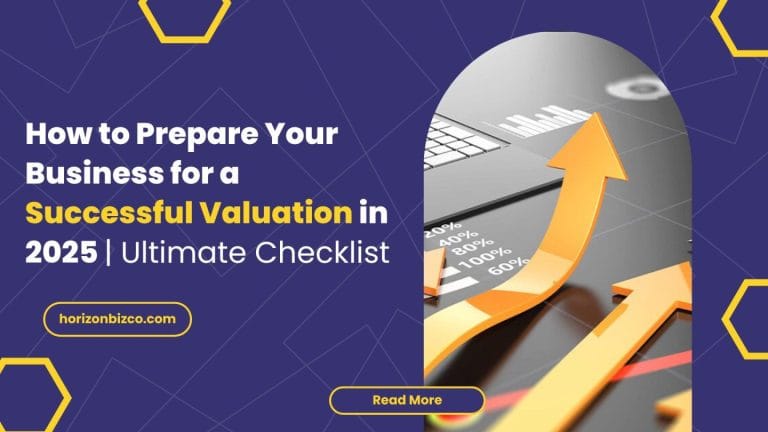Introduction
Business valuations in 2025 are no longer just about crunching numbers. Investors, acquirers, and even internal stakeholders now look beyond the balance sheet; they want transparency, credibility, and a clear growth story.
Whether you’re preparing for a capital raise, a potential exit, or bringing in new partners, how you prepare for the valuation often matters more than the valuation exercise itself. A well-prepared business not only commands a stronger multiple but also accelerates deal timelines and reduces negotiation friction.
Here’s a structured checklist to get your company “valuation-ready” this year.
Why Preparation Shapes Valuation Outcomes
Valuation is as much about perception and confidence as it is about data. Clean financials, documented processes, and clear growth narratives reduce risk for investors and buyers. Reduced risk almost always translates into a higher multiple. On the flip side, overlooked compliance issues or incomplete records can easily drag your valuation down, regardless of how strong your business is.
The Business Valuation Preparation Checklist
1. Organize Financial Records with Precision
- Ensure audited (or at a minimum, reviewed) statements are available for the last 3-5 years.
- Reconcile bank accounts, receivables, and debt positions.
- Eliminate personal expenses or non-business items that may distort financial performance.
In valuation, credibility of numbers matters as much as the numbers themselves.
2. Resolve Legal and Compliance Matters
- Keep all licenses and permits up to date.
- Close or disclose pending litigations or compliance gaps.
- Review and update shareholder/partnership agreements.
Legal “noise” often results in valuation discounts.
3. Highlight Intangible Assets
- Catalogue IP, patents, customer contracts, proprietary tech, and brand assets.
- Showcase brand equity, customer loyalty, and processes that competitors cannot replicate.
In 2025, intangibles often drive more value than tangible assets.
4. Streamline Operations
- Formalize employee handbooks, SOPs, and vendor/customer contracts.
- Retire non-performing business lines.
- Strengthen dependency risk document systems so the value doesn’t rest only on key individuals.
5. Articulate Growth Potential
- Document sales pipeline, expansion plans, and upcoming product launches.
- Emphasize recurring revenue models and customer retention rates.
- Build a forward-looking narrative investors can buy into.
6. Prepare for Due Diligence Early
- Create a secure data room with organized digital files.
- Anticipate buyer questions and prepare fact-based responses.
- Address weaknesses openly, backed with mitigation strategies.
Transparency lowers deal friction and builds investor trust.
7. Engage a Valuation Advisor
Numbers tell a story, but not always the one you want. A professional advisor ensures your strengths are visible, risks are contextualized, and valuation multiples are benchmarked correctly. More importantly, a third-party assessment carries weight with investors and acquirers.
Action Plan for 2025
- Build your internal checklist based on the above steps.
- Involve finance, legal, and operational leaders early.
- Conduct a valuation with an advisor under different scenarios and sensitivity analysis of key assumptions and metrics to identify gaps before going to market.
At Horizon Biz Consultancy, we work with founders and CFOs to not just value businesses, but to make them valuation ready.
Conclusion
A valuation is not simply a report; it’s the story of your company’s journey, Future Vision, and future potential. Preparing ahead of time ensures that the story is told in its strongest form. If 2025 is the year you’re raising capital, considering M&A, or planning an exit, the time to prepare is now.
FAQ’s
Audited/reviewed financial statements, Audited/reviewed financial statements, business plan, capex requirements, business models, company bylaws, IP lists, contracts, and major agreements.
Because they accelerate due diligence, build confidence, and directly influence the offers you receive.
Customer contracts, IP, brand equity, and proprietary technology often form the backbone of premium valuations in 2025.
Yes. Disclosing corrective action plans builds credibility. Hidden risks discovered later can derail a deal.
Absolutely, advisors provide objectivity, market benchmarks, and credibility that in-house teams alone cannot.





